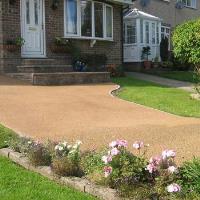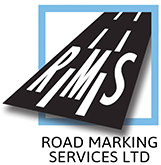 Add My Company
Add My Company
Sign In

Everyone wants a strong, durable driveway for their property. But which material should you opt for? Two popular choices are concrete and resin bound, celebrated for their strength and load-bearing ability.
In this article, we’ll explore these two material types and look at their pros and cons, to help you make a decision that’s right for your home.
WHAT IS RESIN BOUND?
A mixture of resin and aggregates laid over the top of a strong sub-base to produce a beautiful, textured aesthetic.
WHAT IS CONCRETE?
Mixing cement, water and aggregates will produce concrete – a timeless construction material that can be used for multiple high-strength applications, including driveway construction.
SO, SHOULD YOU CHOOSE RESIN BOUND OR CONCRETE?
STRENGTH
Concrete is renowned for its strength, durability and impressive load-bearing capacity which makes it ideal for traffic-heavy applications. Resin bound is also extremely hard-wearing and durable, as the decorative resin/aggregate mix is laid over a sturdy sub-base such as tarmac or concrete. This means it still has the benefit of these hardy materials, but with an added decorative touch over the top. Thanks to the resin holding the aggregates together, there are also no loose stones, making it a scatter-free option just like concrete.
AESTHETICS
The benefit of resin-bound surfacing lies with its customisation. Clients can hand-pick the colour and size of the natural stone aggregates to create a unique finish that complements their property. Concrete, on the other hand, is more famous for its functionality rather than its beauty, and may not make for the stunning entryway that you’re looking for. However, you may favour a more clean, contemporary look and therefore concrete may be preferable for you.
MAINTENANCE
A simple pressure wash every now and then will keep a resin-bound driveway looking as good as new. Thanks to its design, resin-bound doesn’t support weed growth, so weeding will be a thing of the past, and other debris can be simply swept away. Concrete will require a little more maintenance, as weeds can grow through the cracks and joints. Also, check with your driveway installer whether it needs resealing, and how often.
PERMEABILITY
Concrete has zero permeability, meaning that any water will drain over the surface which could lead to pooling and the surface becoming slippery in icy weather. The unique porosity of resin-bound surfacing means that water can easily drain away into the underlying water table – this will reduce pooling and freeze-over.
COST
It comes as no surprise that concrete is the cheaper option out of the two. However, the benefits of resin bound make it well worth the investment, especially since it will last with minimal maintenance for years to come. Resin-bound driveways are also likely to add more value to your property when it’s time to sell up. #
For more information on RESIN BOUND VS CONCRETE: WHICH IS BETTER FOR MY DRIVEWAY? talk to Road Marking Services
Enquire Now
List your company on FindTheNeedle.

